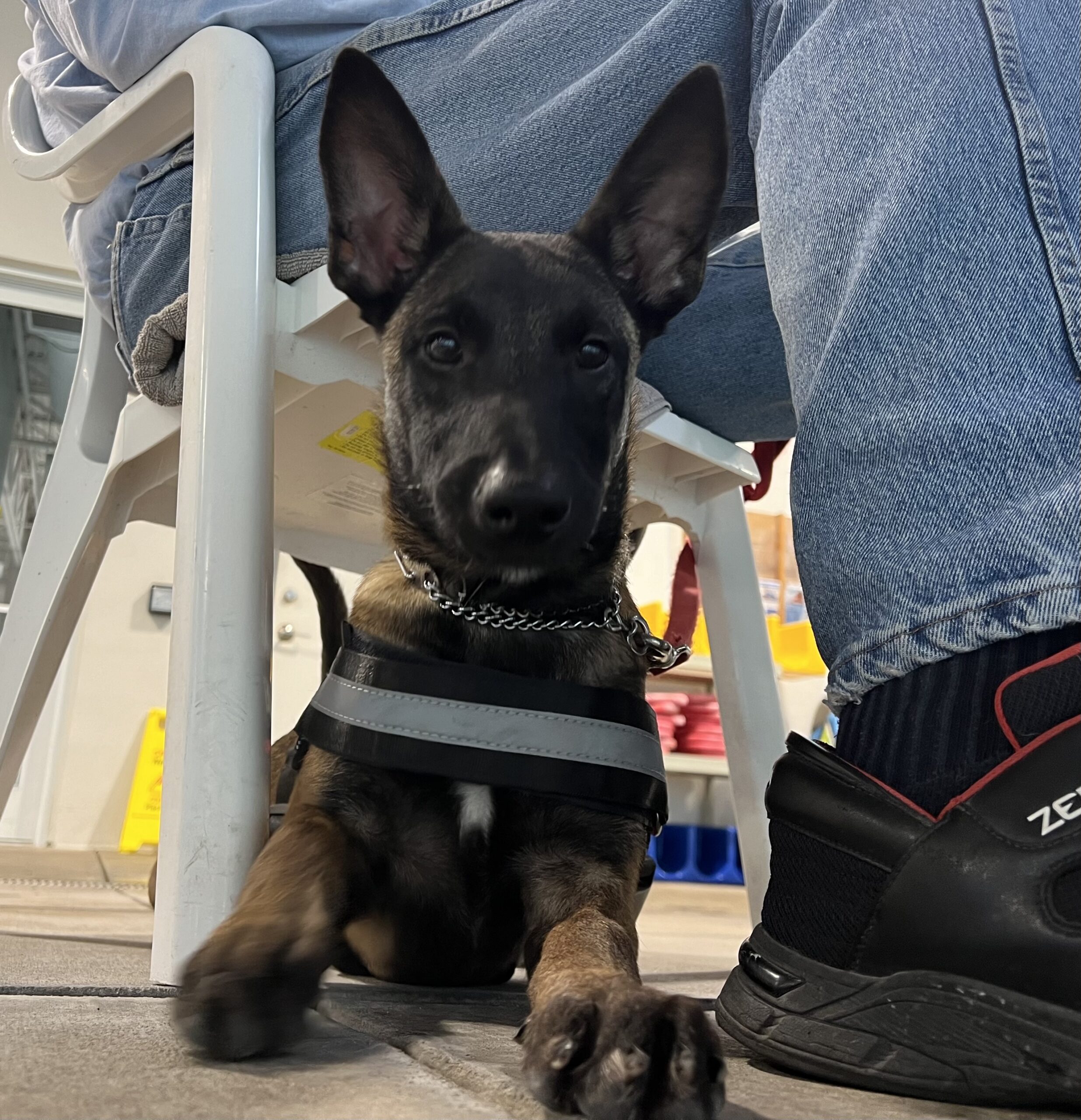Service dogs are valuable companions for many individuals who require assistance with daily activities. These specially-trained canines provide more than just simple companionship. For example, they can aid in the prevention of injury, provide support, aid with navigation, and even help alleviate PTSD symptoms. However, training a service dog is not a one-size-fits-all activity. Specificity is key when it comes to training these intelligent animals. Each recipient has vastly different lifestyle needs and goals. Here I delve into why training a service dog needs to be tailored to the recipient’s lifestyle and needs, and taking into consideration goals to help with their recovery. Watch me (Sandra LaFlamme) train at a public pool click: https://youtu.be/rg-P9w5gT3g
Service dogs are trained to perform specific tasks to meet their owner’s needs. For instance, some are trained to alert their owners before experiencing a seizure or low blood sugar. In contrast, others help visually and hearing-impaired individuals navigate their surroundings. Some service dogs are trained to help veterans suffering from Post-Traumatic Stress Disorder (PTSD). To train a service dog to aid with PTSD, specific training is required. PTSD is a brain injury triggered by experiencing or witnessing a traumatic event. Symptoms include anxiety, sleep disturbance, and fear. Canines For Heroes provided highly trained service dogs to Veterans and First Responders where we are helping ameliorate the PTSD: these service dogs are providing a comfort, security, and support. It is vital to ensure that the dog is trained or selected to meet the needs of the handler’s condition.
Apart from performing specific tasks, service dogs are selected and trained based on a recipient’s lifestyle. For example, an individual who leads an active lifestyle may require a service dog that’s trained to join in on outdoor activities like hiking, running or swimming. Service dogs trained as swimming companions at public pools are expected to stay next to the lane the swimmer is in and observe their recipeint. They need to be out of the way of lifeguards and other swimmers. Checking in at the lifeguard station will ensure a comfortale space for the dog and room for everyone else. The dog should be maintained in a dry area. Since many times the dog is on PLACE for 40 minutes ( a good lap swimming time) a towel and water to drink can be availalbe. This can be a stressful place for a service dog because it’s loud, constantly changing and fast moving. All the better for our recipeint’s to have a great service dog that handles the challenge well.
A well-trained service dog can significantly impact a person’s recovery process. This is where specificity comes in. When training a service dog, it’s critical to consider the specific needs of the owner and their recovery process. For example, a service dog trained for an individual with PTSD should be good with people and surrounding adjustment. It should be able to detect the owner’s unease and provide comfort and support through a well-established routine. The dog should also be trained to follow structured commands and prompts.
Not every dog has the temperament or aptitude needed to work as a service dog. Every service dog must receive extensive training to ensure that they have the cognitive ability and temperament to take on the task of being their owner’s helper. Additionally, they need to receive proper training to meet their owner’s specific lifestyle and recovery goals. Failure to do this can result in a dog that is not fit for purpose, doesn’t provide the intended assistance, and hinders the owner’s recovery process.
Understanding the importance of specificity is crucial for training a service dog. The owner’s lifestyle, needs, and goals must be considered when selecting and training the right dog. This is especially true when managing conditions such as PTSD, where a well-trained service dog can positively impact the recovery process. These dogs are the family for a very long time and are a significant role in their owner’s lives, providing the necessary assistance to perform daily activities and cope with challenging conditions. When appropriately trained, service dogs can be a source of comfort, support, and stability. Canines For Heroes -a 501 (C) 3 since 2016 has been providing highly trained service dogs since 2016. To contibute to the cause click: https://interland3.donorperfect.net/weblink/weblink.aspx?name=E358976&id=3

